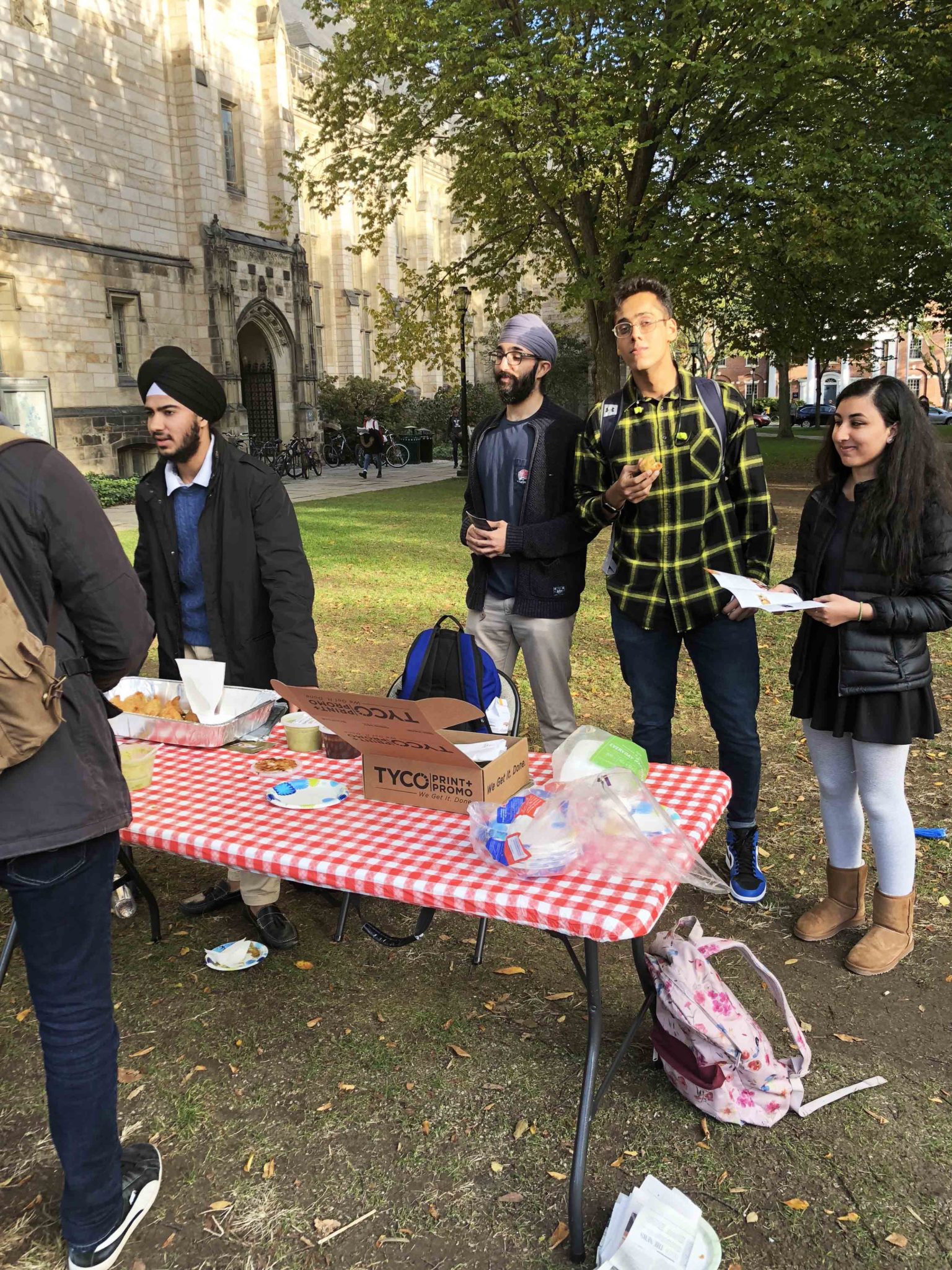
As a steady flow of students passed through Cross Campus, the Sikh Student Association handed out brochures and samosas — not for donations or signatures but to educate the student body on Sikh culture.
At a tabling event organized by the Sikh Student Association on Wednesday afternoon, club members distributed informational brochures, which included a background and history of the Sikh religion. Though Sikhs represent a small portion of the Yale student body, they comprise the world’s fifth largest religion, according to Sikh Student Association Treasurer Ikbal Ahluwalia ’22.
“We’re hosting this awareness event to spread information in a casual way over samosas to make sure that Yale students know a little bit more about the religion,” Ahluwalia said.
The purpose of the tabling, according to Sikh Student Association President Jyot Batra ’21, was to correct misconceptions about the religion. According to Batra, many people do not understand the meaning of Sikhism or the message of Sikh values. The tabling will help to promote mutual understanding between Sikhs and non-Sikhs, Batra added.
“[Sikhs are] becoming more and more visible, and I feel like it’s necessary for our community as a whole to increase those awareness efforts,” Batra said.
The Chaplain’s Office supported the Sikh Student Association with funding and helped them print the brochures, which Batra said he hopes people will keep or share with friends.
Last semester, Sikh students revived the Sikh Student Association after three years of dormancy. Members hope to promote cultural awareness about the Sikh identity and values, Batra said. Through the tabling and other events, members will answer frequently asked questions regarding Sikhism — including what a turban represents, why Sikh men have beards and why Sikh females have long hair, Batra added. The club currently consists of 10 active members.
Other aspects of faith, such as selfless service, will be showcased during future events. According to Batra, everyone who enters a Sikh temple is welcomed with a free meal. In the winter, the club plans to volunteer in a student community kitchen with the Yale Hunger and Homelessness Action Project.
Many Sikhs tend to congregate in New York, California and Washington D.C., Batra said. Their representation in entertainment, politics and scientific fields is increasing — another reason for why Yale students will benefit from education on Sikh culture, Batra noted.
Connor Fahey ’22 did not know much about Sikhism before visiting the booth; he said he found it very informative.
“I considered myself generally unfamiliar and unaware of Sikhism and its practices, but I’ve always wanted to know more,” said Fahey. “The table was a great chance to learn more without having to devote too much time or add stress.”
The Sikh Student Association is currently applying for an affiliation with the Asian American Cultural Center and Dwight Hall.
Katherine Du | katherine.du@yale.edu and
Samuel Turner | samuel.turner@yale.edu .







